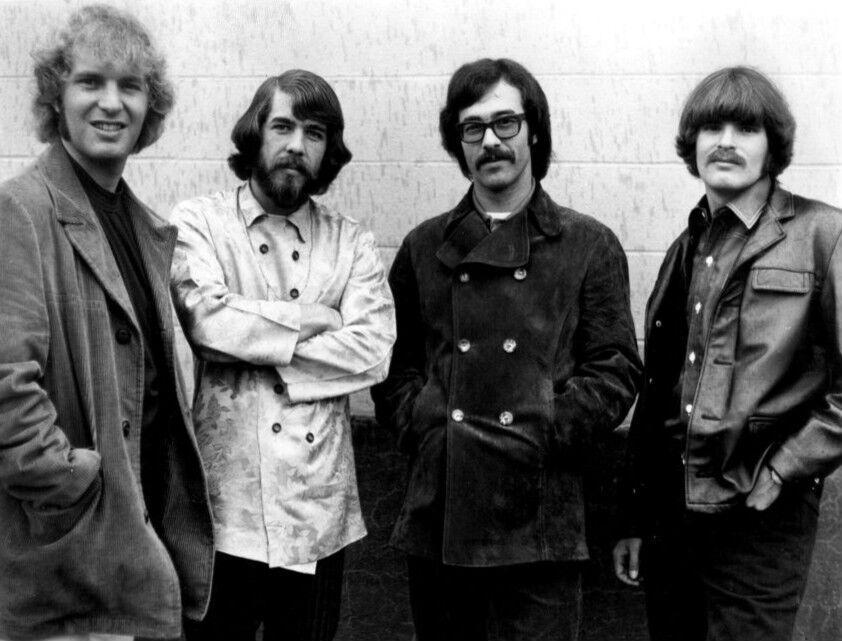During the late 1960s and early 1970s, musicians took a political stand against the Vietnam War through their music.
Many anti-war anthems were produced, and often, these songs are thought of interchangeably with the Vietnam War. The era of “Vietnam Music” became a part of U.S. history.
When the U.S. government declared that the nation would be intervening in the war, American citizens (predominantly the youth) protested against what they saw as America’s unnecessary involvement. The phrase “hell no, we won’t go” was shouted in the streets, along with signs held high by those who opposed the war. The U.S. military forcibly drafted young men, and some succeeded in “draft dodging.”
MORE ENTERTAINMENT: This Week in Baton Rouge: desserts, flu shots, carnival
In an effort to have the American government listen to the public’s plea, many musicians protested the war through music. As Buffalo Springfield said in “For What It’s Worth,” “There’s battle lines being drawn/ Nobody’s right if everybody’s wrong, Young people were speaking their minds/ Gettin’ so much resistance from behind.”
This time in American history produced some pivotal songs, with gripping lyrics that swayed public opinion. The iconic Vietnam protest song “Fortunate Son,” by Creedence Clearwater Revival, captures the population’s view of the war.
With the lyrics, “Some folks inherit star-spangled eyes/ Ooh, they send you down to war” and “I ain’t no senator’s son,” the band expresses how those in powerful positions didn’t worry about being sent off to fight in a war.
The band’s other song, “Run Through the Jungle,” illustrates the Vietnam battlefield vividly. The lyrics, “Two hundred million guns are loaded/ Satan cries, ‘Take aim’/ Better run through the jungle,” express how much fear the soldiers felt.
During the 1969 “summer of love,” the Woodstock Music and Art Fair aimed to bring unity, to bring forth peace and love. Of this free festival was Jimi Hendrix’s rendition of the national anthem played solely on his guitar. This gut-wrenching guitar solo sounds like a distorted speaker playing the Star-Spangled Banner. At various parts, Hendrix imitates the sounds of helicopters, gunfire and the dropping of bombs with his guitar. As he plays this, there are no other sounds but his guitar, and the crowd is silent as they watch in awe.
A poignant song that has an anti-war message is “Eve of Destruction” by Barry McGuire. This song starts off strong with the lyrics, “Violence flarin’, bullets loadin’/ You’re old enough to kill, but not for votin’/ You don’t believe in war, but what’s that gun you’re totin’.” This song has the undeniable message of the political unrest citizens were feeling at this time.
Another song, “Billy Don’t Be A Hero” by Bo Donaldson & The Heywoods,” follows the narrative of a young man named Billy who wants to be drafted so he can be a hero. Billy’s girlfriend begs him to stay and not be a hero, but he goes anyway. Billy ends up being killed in battle, and his girlfriend receives the infamous letter many young women received that told them their beau had died. One part of the song follows the young woman’s words when she begs Billy not to get in the draft line, and the song follows, “Billy, don’t be a hero, don’t be a fool with your life… And as he started to go, she said, ‘Billy, keep your head low.’”
The song “Something In The Air” by Thunderclap Newman is another anti-war anthem. The opening, “Call out the instigators/ Because there’s something in the air/ We got to get together sooner or later/ Because the revolutions here/ And you know it’s right,” was a cry to join arms together against the war.
The song “War” by Edwin Starr is undeniably the spearhead of the anti-war message. Starr sings, “It ain’t nothing but a heartbreaker/ Friend only to The Undertaker/ War is an enemy to all mankind/ The thought of war blows my mind/ War has caused unrest within the younger generation/ Induction, then destruction/ Who wants to die?”
John Lennon’s “Gimme Some Truth” may not be about the Vietnam War specifically, but it’s still a political protest-heavy tune. The lyrics “I’m sick and tired of hearing things/ From uptight, short-sighted, narrow-minded hypocrites/ All I want is the truth/ Just give me the truth” are a powerful message felt by all who came to distrust the politicians who supported the war.
Whether this song relates to the Vietnam War is debatable, but “Magic Carpet Ride” by Steppenwolf opens with the sounds of a roaring helicopter. The speculation is that the song is a wish for a magic carpet ride with a girl to take the soldier away. The sound of the guitar imitating a helicopter makes listeners think this is the meaning of the song.
There’s much more to this period of music, and so many songs with underlying messages of protest against war and violence. Music and musicians began using their songs as a way to generate change, something that wasn’t as common before the war.








